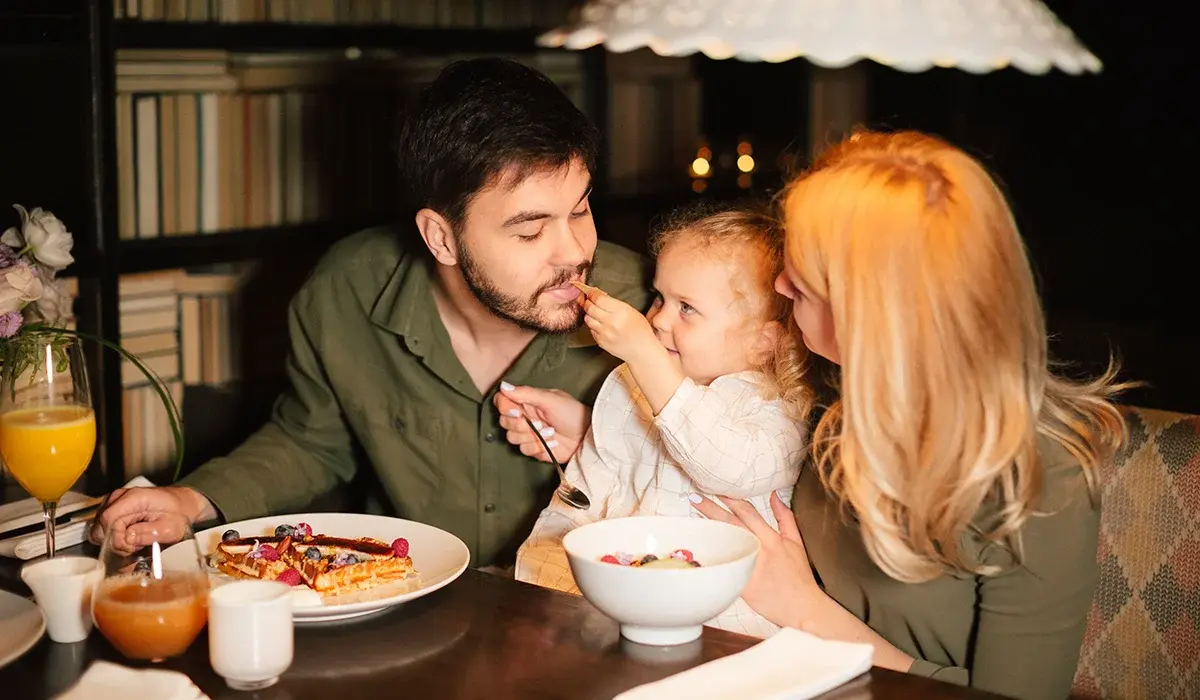Culture
The TikTok Trend ‘I’m So Hungry I Could Eat a Kid’: Harmless Fun or Red Flag?

Hungry TikTok Trend Debate: Why Parents Should Think Twice Before Joining the Craze
TikTok trends rise quickly, and many go viral overnight. But not all trends come without consequences—especially for young children. One new trend, which we will explore here, has sparked significant controversy. This one involves a bold and bizarre statement: “I’m so hungry I could eat a kid.” This strange phrase launched the Hungry TikTok trend debate online, with mixed reactions from parents, experts, and mental health professionals.
Some may think it’s funny or harmless, but experts encourage a deeper look. Kids often interpret words more literally than adults expect.
What Is the ‘I’m So Hungry I Could Eat a Kid’ TikTok Trend?
Parents film themselves telling their toddlers they’re so hungry they could “eat a kid.” They then capture the child’s reaction. Some kids laugh, some look confused, and others respond with comical replies of their own. The internet quickly took notice, and the challenge became widespread.
At first glance, these videos appear lighthearted. However, the Hungry TikTok trend debate raises serious questions. Are children truly unaffected? Or do parents risk damaging trust with these jokes?
Why Some Mental Health Professionals Are Concerned
According to Patricia Bathurst, LMFT, at The Oasis Rehab in California, these jokes are not born of malice. She admits the videos she’s seen seem innocent on the surface. Most kids appear calm, and the parents likely predicted their responses ahead of time.
However, Bathurst still warns against casually joining the trend. “If there’s any doubt your child may get scared,” she says, “just don’t do it.” She highlights that the loss of trust isn’t worth internet validation.
Sari Goodman, MA, a certified parenting coach, echoes these concerns. She reminds us that most children under 4 can’t understand sarcasm. They take everything adults say literally—especially when it’s said by someone they love and trust.
Because of this, even smiling and laughing kids may not “get the joke.” They’re simply mimicking their parents’ emotional cues without understanding.
@funnybebesoftiktok Part 45 | I’m so hungry I could eat a kid trend! 😭 Funny baby videos #funnybaby #babiesoftiktok #cutebaby #kidsoftiktok ♬ original sound – FunnyBabiesofTiktok
The Risk of Modeling Teasing Behavior to Kids
Participating in this trend could teach children the wrong lessons. By watching their parents joke at their expense, they might learn that teasing equals fun.
Goodman poses a powerful question: “What happens when your child copies this behavior at school?” In the context of the Hungry TikTok trend debate, the concern grows. Parents may inadvertently teach kids that bullying others can earn laughs or approval.
Even worse, when kids imitate these actions with peers, consequences could arise. A child joking about eating someone might scare or confuse another young child who doesn’t understand humor yet.
Children Feel Words Differently Than Adults
Amber Monroe, LMFT at Healing Balance Therapy, strongly urges caution. She states that children don’t always grasp intention. They interpret literal meanings and emotional tones.
When a parent makes an odd or scary statement—like pretending they might eat their child—it can confuse a child. It may even leave emotional scars or affect how safe they feel at home.
If a child does react negatively, Monroe recommends clear reassurance. Remind your child it was a joke and that they are completely safe and loved.
According to Monroe, signs of distress can include nightmares or acting out. If these signs appear after filming one of these videos, it’s time to have an honest and supportive conversation.
Hungry TikTok Trend Debate: The Bigger Picture for Parents
Although TikTok thrives on humor and virality, parenting demands thoughtfulness. That’s where the Hungry TikTok trend debate becomes important. Monroe reminds us that kids aren’t props for internet clout.
What may seem like a funny, fleeting moment for adults can stay in a child’s memory. It may resurface later as confusion, anxiety, or distrust. This happens especially when young kids can’t interpret jokes in the way we do.
Parenting doesn’t require perfection—but it does require intentionality. We must consider how our words and actions shape our children’s view of the world. Even when chasing harmless laughs, the child’s well-being should always come first.
Proceed With Care and Thoughtfulness
Before participating in the next viral trend, ask yourself: Will this joke build my child up or confuse them? Is this moment worth possibly upsetting their emotional sense of safety?
Sometimes, the cost of going viral is too high. And for many families, preserving trust is far more valuable than internet likes.
Explore more parenting insights, news, and trends on this website. Your next important read is just a click away.












